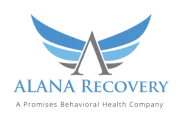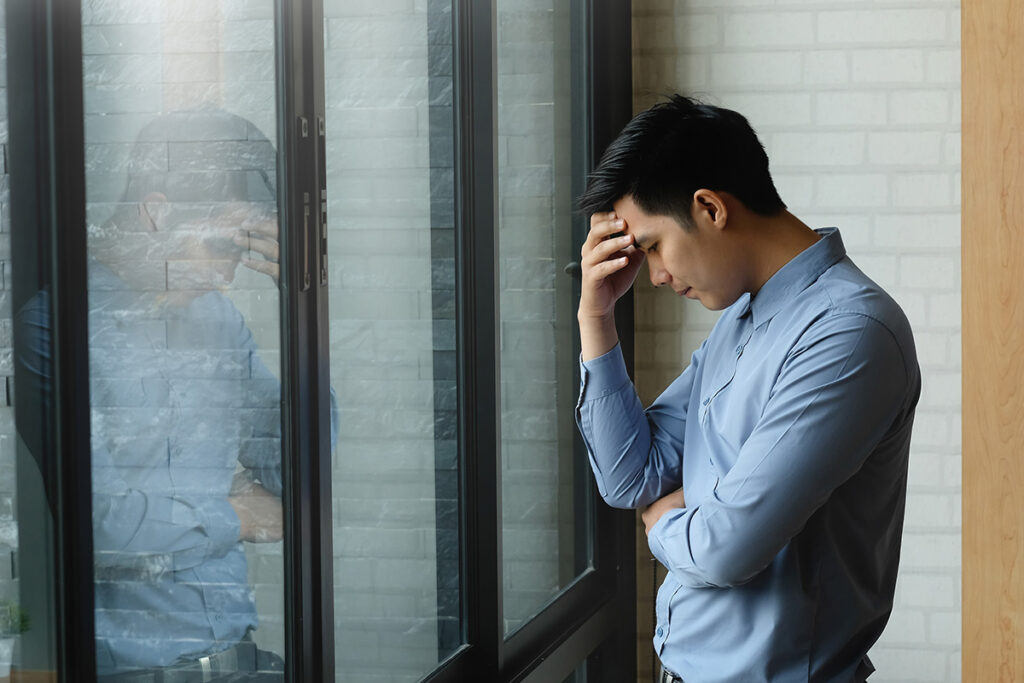You’re not alone in trying to find answers about mental health and addiction—and just by being here, you’ve already taken a big first step. At ALANA Recovery, part of Promises Behavioral Health, we’re more than just an addiction treatment center. We’re a place where you’ll find compassionate care and support for mental health challenges like bipolar disorder. If you or someone you love needs help with addiction or bipolar disorder treatment in Georgia, we’re here for you. Call 770.759.7474 or reach out online to connect with our team and start your journey to healing.
What to know about bipolar disorder
Bipolar disorder is a complex mental health condition that affects mood, energy, and behavior. It can make everyday life and relationships difficult, especially without treatment. People with bipolar disorder often experience intense highs (mania) and lows (depression) that can feel overwhelming. But with the proper care and support, it’s possible to manage symptoms and live a fulfilling life. We’re here to help you take that next step.
Bipolar disorder affects around 4.4% of adults in the United States at some point in their lives. For many, it can feel overwhelming—about 83% of those impacted experience significant challenges because of it.1 Understanding the specifics of substance use disorders and how they connect to mental health conditions like bipolar disorder is key to long-term healing. That’s why ALANA Recovery offers dual diagnosis treatment programs and integrated mental and emotional recovery support.
What are the types of bipolar disorder?
Recognizing the type of bipolar disorder someone is experiencing is so important when it comes to offering the proper support. The main types include:
- Bipolar I disorder: This involves manic episodes that last at least seven days or are so severe that they require hospitalization, often followed by periods of depression.
- Bipolar II disorder: This includes less intense hypomanic episodes along with full depressive episodes but no full-blown mania.
- Cyclothymic disorder: A milder form with ups and downs—it includes periods of hypomanic and depressive symptoms over at least two years, but the symptoms don’t fully meet the criteria for a diagnosis.
- Rapid cycling: This isn’t a separate type but a specifier for someone who goes through four or more mood episodes in a single year, no matter which type of bipolar disorder they have.
If you’re not sure what type you or a loved one might be dealing with, starting with a mental health assessment can help make things clearer. You’re not alone—help is out there.
What is rapid cycling bipolar disorder?
Rapid cycling bipolar disorder isn’t its own diagnosis—it’s a way to describe how often someone goes through mood episodes. These episodes can be manic, hypomanic, depressive, or a mix, and they might change quickly, sometimes within weeks or even days.
People experiencing rapid cycling may feel like they are constantly riding an emotional wave. This can make maintaining routines, relationships, and work obligations harder. The quick shifts can also be exhausting and increase the risk of substance use as a coping mechanism.
According to the International Bipolar Foundation, rapid cycling occurs in 10% to 20% of all people with bipolar disorder and is more common in women. While it may feel isolating, the good news is that treatment is available—and effective.
What are the signs of bipolar disorder?
Identifying the signs of bipolar disorder can help you get the support you need sooner. Some common signs to look out for include:
- Feeling full of energy, needing little sleep, or having racing thoughts during manic episodes
- Feeling hopeless, exhausted, or having thoughts of suicide during depressive episodes
- Babbling or acting impulsively
- Experiencing intense irritability or agitation
- Struggling to focus or make decisions
- Having emotional highs and lows that make daily life harder
If you’ve been noticing patterns like these—especially alongside things like substance use or other mental health struggles—know that you’re not alone. Reaching out for support can make all the difference.
Can bipolar disorder co-occur with addiction?
Yes, and it often does. Up to 60% of people living with bipolar disorder in the U.S. may develop a substance use disorder (SUD) in their lifetime.2 In cases like this, the most common SUDs were related to alcohol (42%), followed by cannabis use (20%) and other illicit drugs (17%).3 Many people living with bipolar disorder turn to substances like alcohol or drugs to manage their symptoms.
Struggling with mood episodes and addiction can feel overwhelming, but you don’t have to face it alone. At ALANA Recovery, we’re here to help you tackle both challenges head-on. We design our programs to support you as a whole person, addressing addiction and mood disorders simultaneously with compassionate and effective care. No matter your diagnosis or past experiences, we’re here to help you move forward and create a brighter future.
How bipolar disorder treatment can make a difference
Getting the proper treatment for bipolar disorder can genuinely change your life. Whether you’re experiencing rapid cycling or another type of bipolar disorder, we’ll meet you where you are. We’ll create a treatment plan that fits your unique goals and pace.
Here’s what treatment might include:
- Medication support: Our experienced providers will help you find the right prescription to stabilize your mood.
- Therapy: Options like dialectical behavior therapy (DBT), cognitive-behavioral therapy (CBT), and family therapy provide tools to help you manage emotions and relationships.
- Education and coping skills: We’ll help you better understand your condition and build practical strategies for everyday life.
- Outpatient care: Programs like partial hospitalization programs (PHPs) and intensive outpatient programs (IOPs) let you focus on healing while staying connected to your daily life.
ALANA Recovery takes a trauma-informed approach in a welcoming, judgment-free environment. Our goal is to walk alongside you, helping you develop the skills you need to manage bipolar disorder and work toward recovery from substances if that’s part of your journey. You don’t have to do this alone—we’re here to support you every step of the way.
Connect with ALANA Recovery and get started on taking care of your mental health
If you’re living with rapid cycling bipolar disorder—or if you’re unsure what you’re experiencing—there’s help, and there’s hope. At ALANA Recovery, we’re here to help you heal—mind and body. Our outpatient rehab in Georgia supports both mental health and addiction recovery because we understand the importance of feeling safe, grounded, and empowered again.
Take the first step toward bipolar disorder treatment by reaching out to us. Contact our team online or call 770.759.7474. Your first step to a life after narcotics and alcohol can start today.
Footnotes:
- National Institute of Mental Health.“Bipolar Disorder” Accessed April 10 2025.
- PubMed Central.“The impact of substance use disorders on recovery from bipolar depression: Results from the Systematic Treatment Enhancement Program for Bipolar Disorder psychosocial treatment trial” Accessed April 10 2025.
- PubMed Central. “Prevalence of comorbid bipolar and substance use disorders in clinical settings, 1990-2015: Systematic review and meta-analysis.” Accessed April 10 2025.

